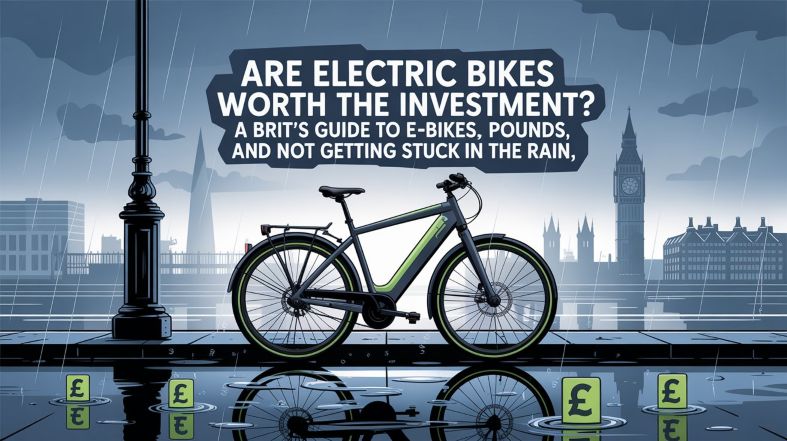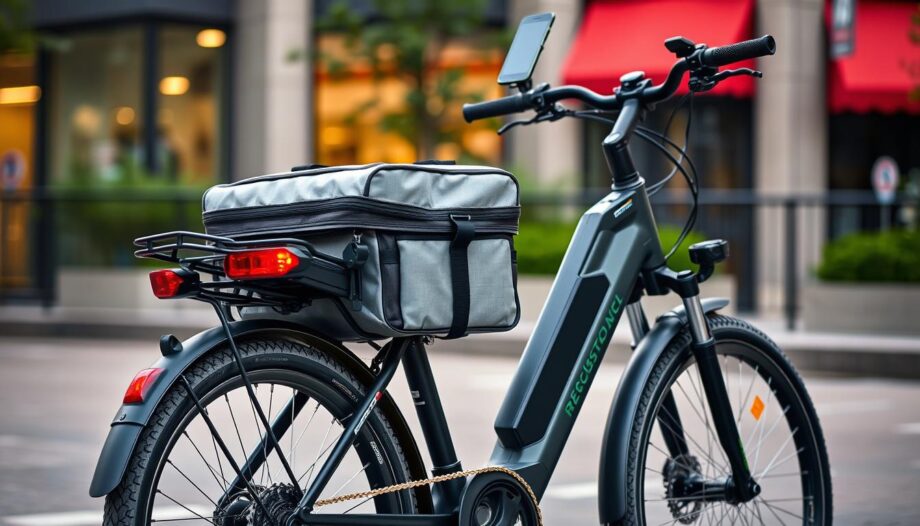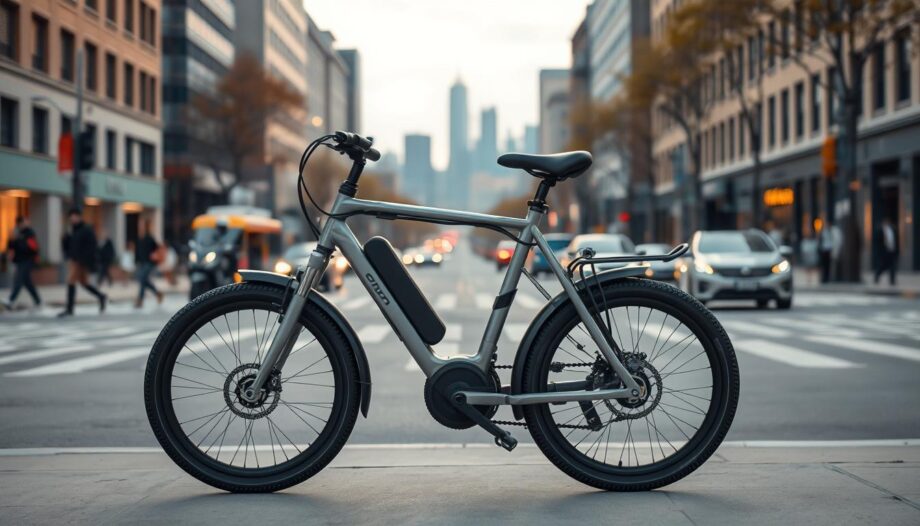The answer is NO. Using an electric bike is not cheating, it’s not a race, the health benefits of using an e-bike are substantial even when a motor is assisting you, and in all fairness everyone is different.
E-bike Cheating is not a thing, I have had people shout” You are cheating” at me, as I fly past them on uphill. I think it has something to do with the competitive nature of people who take cycling seriously and not on their daily commute, I think some of it is banter so you should not take anything like this seriously, after all, we are just out for a ride.
I looked on Reddit and one ebike owner had a person riding a horse shout “You’re cheating“, which makes my brain hurt. Maybe she should try carrying the horse, but what the e-biker failed to say was” Get off your high horse”, and missed a bit of a chance, absolute comedy gold was just wasted!

When discussing the use of electric bikes, it’s crucial to understand that they are designed to assist, not replace, the rider’s efforts. Despite what some may argue, electric bikes are not about doing the work for you; instead, they are meant to offer a helping hand when needed, it is called innovation
I would like to add I did food delivery on my bike for 4 years in the city of Sheffield which has more uphill terrain than most cities, at the end of my 3-hour shift I was still very tired, not totally exhausted like I was on a normal bike, but I used a fitness watch and tracked my heart rate, there was not much different between that when I used an e-bike and when I used a normal bike.
So using an e-bicycle can get you fit, now on the flip side if you are reliant on electricity and hardly doing any pedalling you are not going to be super fit, but while ever you are rotating the pedals you are doing some cardio, so this is not a reason not to ride or buy an ebike.
The Case for Electric Bikes: Not Cheating but Aiding?
It’s quite similar to having a teammate – they don’t play the game for you, but they can certainly make it easier to achieve your goals. And that’s precisely what electric bikes do – they make cycling more accessible and enjoyable for a wider range of people.
There are many reasons why people use an ebike, maybe they have some kind of disability. maybe they hurt their leg and still want to be able to get around and not use a mobility scooter or wheelchair, would you call it cheating then? obviously not.
They provide support on challenging terrains or steep inclines, allowing riders to tackle routes that they might otherwise struggle with and give people to ability to get around when they may have had to rely on public transport before.
This means more people can enjoy cycling without feeling daunted by difficult landscapes or long distances. E-bikes can effectively level the playing field, enabling seniors or individuals with physical disadvantages to revel in the joys of cycling, if you are out riding with fitter younger people.
An important aspect often overlooked is how e-bikes promote physical activity and outdoor mobility. By offering assistance, riders are encouraged to engage in physical activity that they might have otherwise felt incapable of. It’s not about taking the easy way out; it’s about making cycling more attainable and promoting a healthier lifestyle.
This kind of thing all makes people healthier and takes away strain on the NHS as we would all live longer and have less illness.
Plus, let’s not forget that electric bikes provide an environmentally friendly alternative to traditional modes of transportation, reducing carbon emissions and contributing to sustainable living.
At Reight Good Bikes, we’re committed to providing electric bikes that enhance the overall biking experience and promote inclusivity and mobility. Our range of pedal-assist options ensures that cyclists receive just the right amount of support needed. From conquering challenging terrains to enjoying leisurely rides, our electric bikes aim to empower riders and broaden their horizons.
Electric bikes offer a plethora of advantages that extend beyond mere assistance – diving into a comparison between electric bikes and traditional ones will shed further light on these benefits.
I think it may be interesting if they did an electric bike Tour De France, each person gets a large battery beginning of the stage and you have to make the battery power last, it may be interesting and introduce some new tactics to the world of cycling, as well as promoting eco-friendly ways to get around to the world.
I suppose the one caveat is if you have an e-bike with a throttle, which can be used without pedal assist, and usually will use the bike at maximum speed and performance, but these types of bikes are not legal in the UK, as throttles are not allowed on ebikes here, not that it stops people using them though.


The Core of the Debate: Are Electric Bicycles Cheating?
The controversy surrounding electric bikes centres on whether the use of a motorised assist constitutes cheating in cycling. Traditional cyclists may argue that the motor gives riders an unfair advantage, especially during physical exertion, which is a fundamental aspect of cycling. However, it’s important to consider that not all cycling activities are competitive. Many individuals use bicycles for leisurely rides, outdoor exploration, and commuting, where arriving at a destination without being drenched in sweat is preferred.
Despite the motorised assistance, e-bikes still require effort from the rider; they are pedal-assist, meaning that the motor provides a boost while relying on human pedalling. It’s crucial to recognise that cycling is a diverse activity with varying objectives, and the idea of “cheating” might not apply uniformly across all these activities.
Imagine wanting to explore challenging terrains without being deterred by physical limitations. Electric bikes enable individuals to extend their range over all terrains, making it easier and more enjoyable to tackle hills and long distances thus expanding the opportunities for outdoor exploration.
One can think of the transition from traditional pedal bikes to electric bikes as similar to how the shift from horses to combustion engines transformed transportation. This evolution brought about increased efficiency and accessibility, ultimately enhancing the overall experience rather than leading to any feeling of “cheating.”
As Reight Good Bikes advocates, promoting the inclusion of electric bikes as part of the cycling community is vital. By embracing this new technology and recognising the benefits of using ebikes, we can expand the appeal and accessibility of cycling for individuals with different needs and preferences.
Considering these factors, it becomes evident that the debate around electric bikes goes beyond mere competition. Instead, it reflects the evolving landscape of cycling as an inclusive activity encompassing various forms of recreation, transportation, and personal convenience.

Honestly, I think if it is fun and you enjoy it, you should not even listen to the people who say it is cheating, just shout wooohoo as you fly past them, honestly who cares we are not cycling the Tour De France after all, if you are by the way it definitely is cheating haha!
How do people’s opinions on e-bikes being considered cheating vary across different countries or communities?
People’s opinions on electric bikes being considered cheating vary across different countries and communities. In countries like the Netherlands and Denmark, where cycling is deeply ingrained in the culture, electric bikes are widely accepted as a practical mode of transportation without the stigma of cheating. In contrast, other countries may have a more traditional view of cycling as pure exercise, leading to concerns about the use of electric assistance. Surveys conducted in 2023 showed that 79% of respondents from the Netherlands believed electric bikes were not cheating, compared to only 45% in the United States. These variations highlight how cultural attitudes towards cycling shape opinions on whether electric bikes should be considered cheating.
Are there any rules or regulations regarding the use of electric bikes in competitive sports or events?
Yes, there are rules and regulations regarding the use of electric bikes in competitive sports or events. In most cases, electric bikes are not allowed in traditional cycling races due to the assistance provided by their motors. However, there are separate categories for e-bike races and specific events organised exclusively for electric bikes. According to statistics from the International Cycling Union (UCI), as of 2024, more than 30 countries have established national e-bike championships, showcasing the growing popularity and recognition of electric bikes in competitive cycling.





